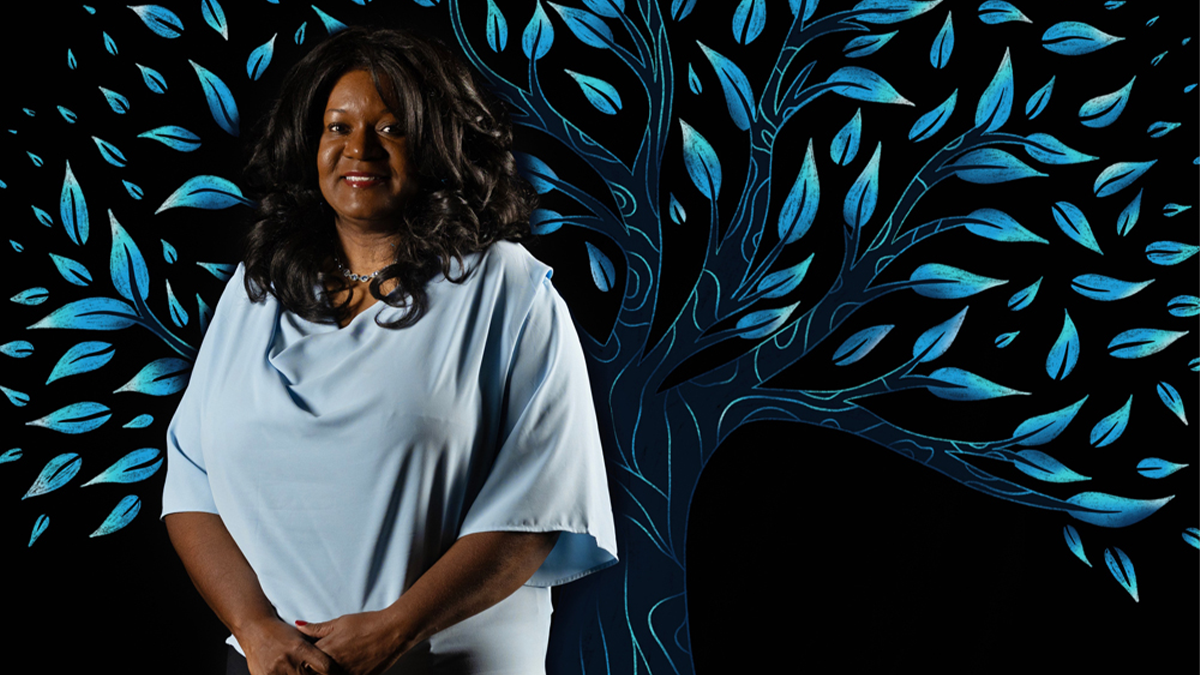Social work dean promotes kinship care
Ramona Denby-Brinson’s work shows that children do better when they avoid the foster system and stay in the homes of relatives.

For the last 30 years, Ramona Denby-Brinson has pushed for more policies that consider relatives as caregivers. Her research shows that this drastically improves a child’s home life, mental health, school experiences and economic situation compared to children placed in foster homes.
“Kinship care is a protective factor,” says Denby-Brinson, who has been dean of the UNC School of Social Work since 2021. “We get a host of positive outcomes when children are placed with relatives — and that placement is therapeutic for them. When we support these caregivers, children do well.”
Her three most-cited studies are about foster care. Two unpack why foster parents continue to take in children — or cease to — and their overall satisfaction, and the third reveals the Black foster parent experience, specifically. She found that parents need more support, training and respect from social workers and other agency officials. Other pain points include compensation, the types of children placed with parents, and the involuntary closure of homes.
Through this work, she discovered a class of parents experiencing those problems, but equipped with fewer resources and attention: kinship caregivers.
Support for kinship care
Approximately 10% of the nation’s children are raised by relatives, and there are approximately 8 million kinship caregivers in the United States. But those numbers are purely estimates because millions of informal caregivers lack documentation.
“That’s grandparents, aunts, uncles, even siblings taking care of younger siblings. These families never come into contact with public systems,” Denby-Brinson points out. “And most people assume these caregivers are the child’s biological parents. It’s that group that’s really underserved.”
One of Denby-Brinson’s most successful studies created and assessed a peer-to-peer program pairing new relative caregivers with paid, experienced ones. These “kinship liaisons” shared valuable information about caregiver rights and responsibilities, foster care licensure training, and the permanency process. Overall, this helped new caregivers cope and improved their likelihood of becoming permanent guardians.
The program was so successful that it has been permanently funded in Nevada and recognized by the U.S. Department of Health and Human Services. Many other child and family programs have modeled their interventions after this approach.
Denby-Brinson’s research has also pushed for better state and federal policies that offer preference to relatives first and financial support to those who do take in children. In 2014, the University of Las Vegas acknowledged her success with its highest honor: the Harry Reid Silver State Research Award. She was the first female researcher to receive the award since its creation in 2001.
The call to serve
In June 2023, Denby-Brinson received $1.7 million from The Duke Endowment for a study on kinship caregivers raising children with special needs. A collaboration with other researchers from UNC-Chapel Hill and the University of South Carolina, the five-year intervention — called KinCarolina — aims to strengthen support for these caregivers.
“I’m going to get my street credibility back, doing some real data collection and real social work,” she says with a laugh.In truth, that service to the community continues to drive Denby-Brinson — and it’s what drew her to Carolina in 2021. She admits that she wasn’t interested in leaving her faculty position at The Ohio State University until a colleague encouraged her multiple times to apply for the open deanship at the UNC School of Social Work.
“I wasn’t convinced until I met Kevin Guskiewicz,” she shares. “It was the way he talked about the public mission and about serving all 100 counties. A public university for the public. It drew me right back to the value system I had been raised with: My community, my neighborhood, and my state are my responsibility.”







